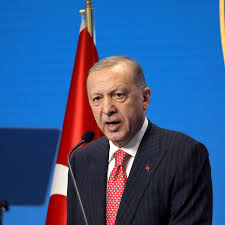
Indonesia Fuel

Fueling Indonesia’s Clean Energy Transition: A Step Toward Sustainability
Indonesia is at a critical juncture in its energy landscape, with the country set to drive a clean energy transition. As one of the largest economies in Southeast Asia, Indonesia faces significant environmental challenges. However, the nation has committed to shifting from fossil fuels to renewable energy sources to support its growing energy demand while reducing its carbon footprint. This transition is not just a necessity, but also an opportunity to accelerate economic growth in a more sustainable and eco-friendly manner.
The Role of Renewable Energy in Indonesia’s Future
Indonesia has vast renewable energy potential, including solar, wind, hydro, and geothermal sources. The country aims to increase its renewable energy share in the national energy mix to 23% by 2025. This ambitious target highlights the government’s determination to reduce its dependence on coal and other non-renewable resources. By tapping into the vast geothermal resources and solar energy potential, Indonesia is positioning itself as a leader in Southeast Asia’s clean energy sector.
The shift to renewable energy is crucial for achieving both environmental and economic goals. Clean energy not only contributes to reducing emissions but also opens up new avenues for job creation, technology innovation, and energy security. This transformation aligns with global trends toward sustainable energy solutions, positioning Indonesia to be a key player in the global clean energy market.
Government Policy and Investments in Clean Energy
The Indonesian government is playing an essential role in facilitating this transition. Through a series of policies, incentives, and investments, it is creating a favorable environment for clean energy development. The government’s commitment to the Paris Agreement and its national climate targets are driving investments in renewable infrastructure. Initiatives like the Renewable Energy Roadmap and the National Energy Plan provide a clear pathway for reaching ambitious renewable energy targets.
Foreign investments are also pouring into Indonesia’s clean energy sector. International companies are eager to partner with local stakeholders to develop solar farms, wind power projects, and geothermal plants. These collaborations will significantly accelerate Indonesia’s clean energy transition, providing the country with the necessary capital and expertise to meet its sustainability goals.
Overcoming Challenges in the Transition
Despite the promising prospects, Indonesia faces challenges in fully realizing its clean energy goals. The transition requires significant infrastructure development, including the modernization of power grids, energy storage solutions, and distribution systems. Moreover, political will, regulatory frameworks, and local acceptance of renewable energy projects will be critical in ensuring a smooth shift from conventional to green energy.
Another challenge lies in financing. While Indonesia has set ambitious renewable energy targets, funding large-scale projects remains a hurdle. However, innovative financing models and public-private partnerships are emerging to bridge this gap. Moreover, Indonesia is increasingly focusing on reducing the cost of renewable energy technologies, making them more accessible for both businesses and households.
Indonesia’s Clean Energy Transition and Global Impact
As Indonesia moves forward with its clean energy transition, the country’s efforts are expected to have a significant impact beyond its borders. With its large population and rapidly growing economy, Indonesia’s energy consumption will rise in the coming decades. By investing in renewable energy, the nation can reduce its reliance on fossil fuels and position itself as a global leader in the fight against climate change.
Furthermore, Indonesia’s success in transitioning to clean energy could set an example for other developing nations in the region. It can show how energy transitions can be done in a way that supports both economic growth and environmental protection. As Southeast Asia’s energy demand continues to rise, Indonesia’s leadership in renewable energy development could encourage other countries to follow suit.
Conclusion
Fueling Indonesia’s clean energy transition is essential for the country’s long-term sustainability and economic growth. By harnessing the power of renewable energy, the nation can reduce its carbon footprint, create new jobs, and become a leader in Southeast Asia’s energy revolution. However, this transition will require strong government policies, substantial investments, and collaboration between local and international stakeholders. If successful, Indonesia’s clean energy efforts will have a lasting impact on both its economy and the global fight against climate change.


